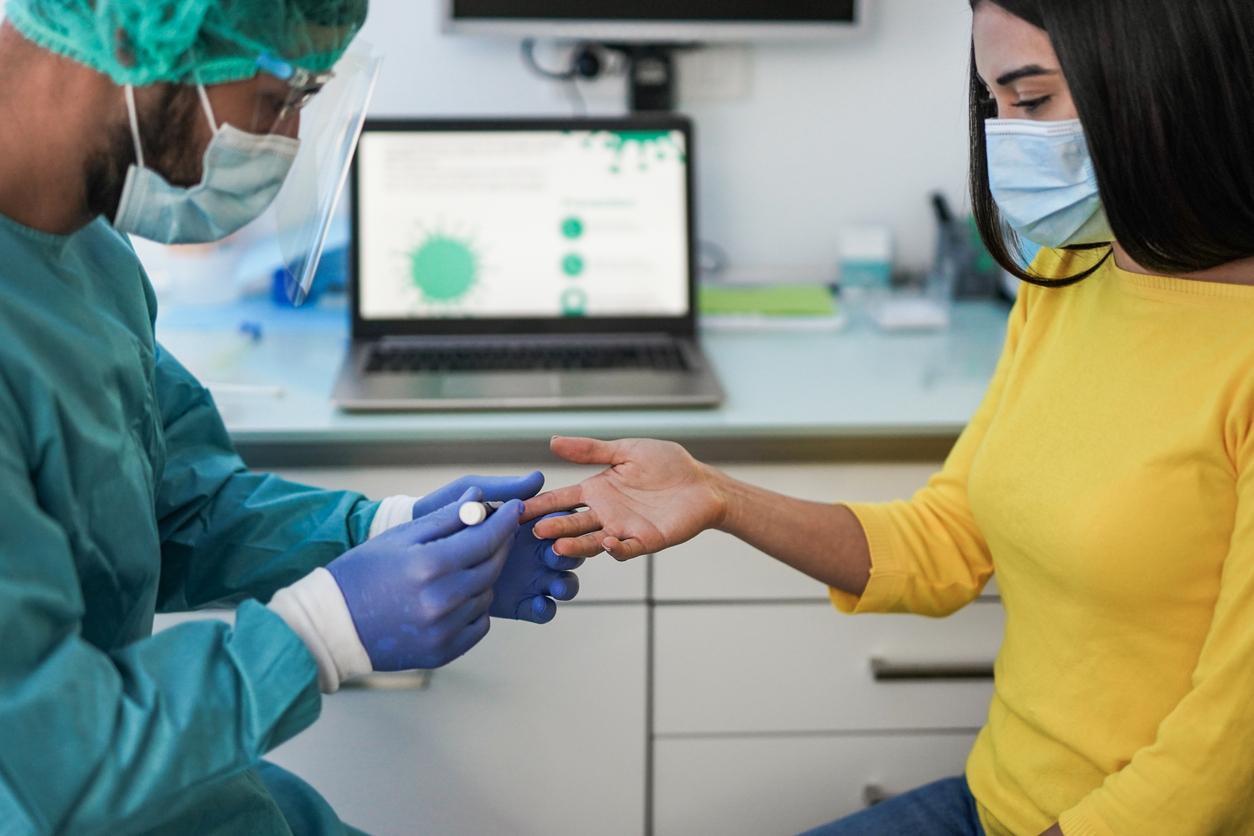Since the appearance of Sars-CoV-2, several elements have suggested a plausible link between Covid-19 and an increased risk of diabetes. A study from King’s College London provides new evidence supporting this hypothesis.

- Diabetes is a chronic disease characterized by the presence of excess sugar in the blood, called hyperglycemia. If the disease is not taken care of, many complications can appear (cardiovascular diseases, kidney failure, retinopathy, etc.)
- We speak of diabetes when the fasting blood sugar level is equal to or greater than 1.26 g/l of blood during two successive examinations.
In June 2020, doctors had shared in the journal New England Journal of Medicine the case of a young man who developed diabetes after being infected with Sars-CoV-2. A new study to appear in the journal Nature Portfolio after validation, suggests that this case is not isolated. It highlights a link between Covid-19 and an increased risk of hyperglycemia.
A link between Covid-19 and diabetes highlighted
In order to determine whether Covid-19 can cause diabetes, a global registry, called CoviDIAB, has been set up. It collects information about the “newly diagnosed diabetes” and the “serious metabolic complications associated with pre-existing diabetes” in patients infected with the coronavirus. The researchers studied data from 537 cases of “new diabetics” who had Covid-19 from 61 hospitals in 25 countries between 2020 and 2022.
The scientists analyzed the records of patients whose diagnoses occurred within four weeks of confirmation of Covid-19. In addition, glycated hemoglobin levels (or HbA1c: average blood sugar over the last three months, editor’s note) were evaluated at the time of detection of the pathology to exclude pre-existing hyperglycaemia and to confirm the association with an infection by the SARS-CoV-2.
The team did find a link: 102 Covid-19 patients were diagnosed with diabetes with glycated hemoglobin recorded after infection. This represents 22% of cases.
Covid-19: cases of type 2 diabetes are the majority
Among adults who had Covid and recently diagnosed with diabetes, the diabetes subtypes were type 2 (59%) or “not yet known” (41%). “There have been two cases of new-onset type 1 diabetes in children“, specify the authors. Hyperglycemia persisted after the infection for 45% of the patients.
Twenty-eight volunteers were followed for more than three months. Diabetes still remained in 23 of them (82%) and only 5 recorded a remission.
“This study shows the clinical plausibility of a diabetogenic effect of Covid-19, supporting screening for diabetes in people who contract the infection. Further investigation is warranted to confirm the mechanisms of viral interference with glucose metabolism“, conclude the authors of the study.
















